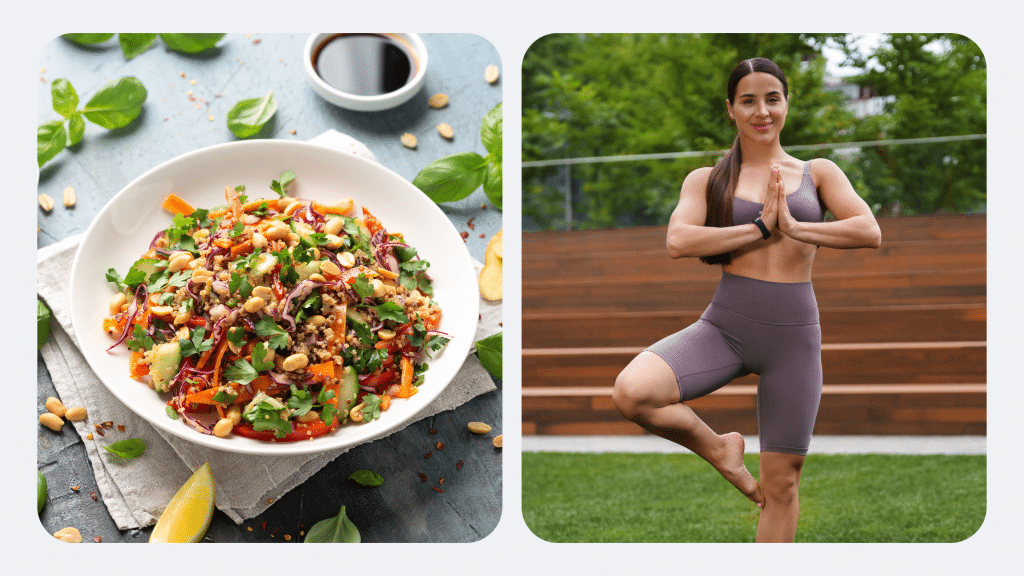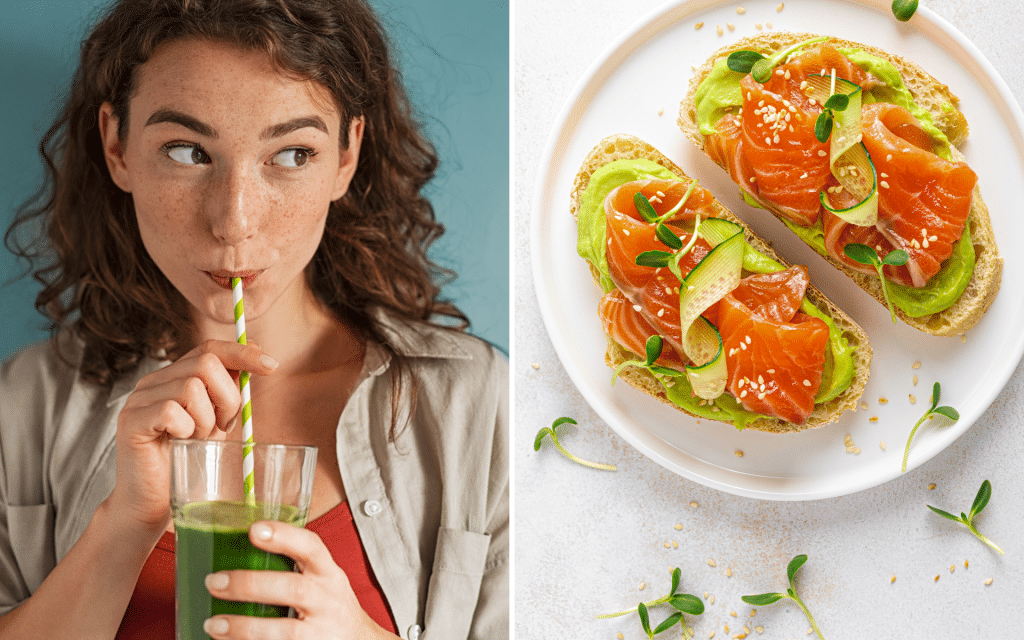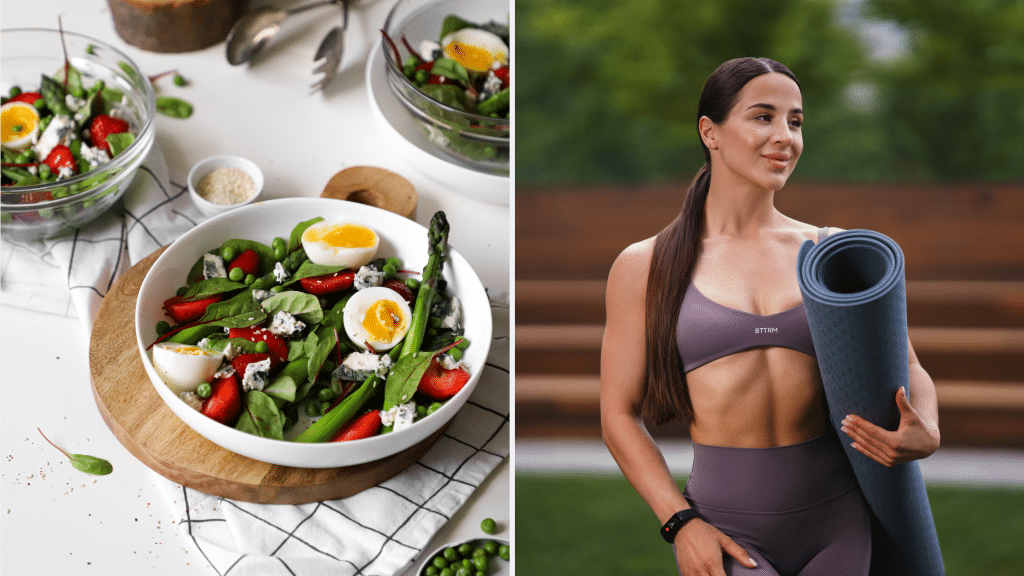The stomach has a naturally acidic environment. This is necessary for breaking down food and protecting against harmful bacteria. However, the acidity levels in the stomach can sometimes become imbalanced, leading to problems such as heartburn, indigestion, and acid reflux.
Proponents of the alkaline diet believe that by eating more of what they call alkaline foods and fewer so-called acid-forming foods, you can restore balance to your body and improve your overall health.
This is simply a hypothesis—there is no scientific evidence to support the claim that eating specific foods can alter the pH of your blood or body tissues. It also doesn’t make sense physiologically – your body tightly controls its pH levels regardless of what you eat. However, there may be some other benefits associated with eating a diet that is high in supposedly alkaline foods.
The foods that make up an alkaline diet are high in fiber and other nutrients. Fiber, for example, has been linked to a lower risk of chronic diseases such as heart disease and certain cancers (8).
What Is the Alkaline Diet?
The alkaline diet is based on the idea that certain foods can affect the acidity or alkalinity (pH value) of your body.
The pH scale measures how acidic or basic a substance is, ranging from 0 to 14. A pH of 7 is considered neutral, below 7 is acidic, and above 7 is alkaline.
The diet encourages the consumption of foods that are alkaline, which means they have a pH greater than 7, and aims to reduce the intake of acidic foods. The theory behind this diet is that eating more alkaline foods can help balance the body’s pH levels, potentially leading to health benefits.
The diet typically includes a high intake of fruits, vegetables, nuts, and legumes, while limiting meat, dairy, and ultra-processed foods.
However, it’s important to note that while the diet promotes generally healthy eating habits, the body naturally regulates its pH balance, and the impact of diet on pH levels will likely be insignificant to nonexistent.
What Do You Eat on an Alkaline Diet?
If you’ve looked up an alkaline foods chart online, you will have noticed that there are different versions of it. This is because there isn’t an official list of what you can and cannot eat on this diet.
Most charts classify foods based on the acidity or alkalinity before it’s consumed, which again will have no effect on the pH of your blood or body tissues because this is tightly controlled by your body.
Highly Alkaline Foods
- Sea vegetables (kelp, seaweed, dulse)
- Sprouts (soy, alfalfa, bean)
- Cucumber
- Kale
- Spinach
- Parsley
- Broccoli
- Himalayan salt
If you wish to free yourself from all the extra pounds that have been weighing you down for way too long, start using the BetterMe: Health Coaching app and overhaul your entire life!
Moderately Alkaline Foods
- Avocado
- Cabbage
- Celery
- Collard
- Capsicum
- Endive
- Ginger
- Garlic
- Lettuce
- Onion
- Arugula/rocket
- Mustard greens
- Tomatoes
- Lemon
- Lime
- Sweet potatoes
- Watermelon
- Butter beans
- Soybeans
- Chia
- Quinoa
Mildly Alkaline Foods
- Artichokes
- Asparagus
- Brussels sprouts
- Cauliflower
- Carrot
- Chives
- Courgette/zucchini
- Leeks
- Baby new potatoes
- Peas
- Rhubarb
- Swede
- Watercress
- Grapefruit
- Coconut
- Buckwheat
- Quinoa
- Spelt
- Lentils
- Tofu
- Other beans and legumes
- Goat and almond milk
- Most herbs and spices
- Avocado oil
- Coconut oil
- Flax oil/ Udo’s oil
Read more: Mediterranean Diet Food List: Your Ultimate Cheat Sheet
What Should You Avoid on an Alkaline Diet?
Avoiding supposedly acid-forming foods is central to following an alkaline diet. This diet allows 20% of your daily caloric intake to come from so-called acid-forming foods. The following are classified as acidic foods:
Neutral/Mildly Acidic Foods
- Beans – black beans, chickpeas, kidney beans
- Cantaloupe
- Currants
- Fresh dates
- Nectarine
- Plum
- Sweet cherry
- Watermelon
- Grains – amaranth, millet, oats, spelt
- Rice/soy/hemp protein
- Freshwater wild fish
- Rice and soy milk
- Nuts – Brazil nuts, pecan nuts, hazelnuts
- Seed oils – sunflower oil, grapeseed oil
Moderately Acidic
- Fresh fruit juice
- Condiments – ketchup, mayonnaise, butter
- Fruits – apple, apricot, banana, blackberry, blueberry, cranberry, grapes, mango, orange, peach, papaya, pineapple, strawberry
- Whole grains – brown rice, rye bread, sourdough bread, whole wheat bread
- Ocean fish
Highly Acidic
- Alcohol
- Coffee/tea
- Dairy – butter, cheese, cream, ice cream, milk
- Meat and poultry – bacon, beef, lamb, pork, veal
- Farmed fish
- Artificial sweeteners
- Cocoa
- Condiments – honey, jam, jelly, mustard, miso, rice syrup, soy sauce, vinegar
- Yeast
- Mushrooms
What Are the Potential Benefits of an Alkaline Diet?
The main claim made by proponents of the alkaline diet is that it can supposedly:
- Reduce Your Cancer Risk
The American Institute for Cancer Research states that there is no direct link between the acidity or alkalinity of your diet and cancer (1).
However, they say that a largely plant-based diet with a lower percentage of animal products may reduce your cancer risk. In this regard, an alkaline diet may offer some cancer-preventative benefits on the basis of eating more plants and fewer animal products.
You don’t need to follow the alkaline diet in particular to get this benefit, you can simply work toward eating more plant-based and fewer animal products.
- Improve Heart Health
The alkaline diet is rich in fruits and vegetables, which are associated with a lower risk of heart disease. Any diet that is rich in fruits and vegetables may also help reduce high blood pressure and high cholesterol levels, both of which are risk factors for heart disease (4).
In addition, the alkaline diet limits animal products, which makes it low in saturated fats and ultra-processed foods, which are linked to an increased risk of heart disease (7).
Again, you don’t need to follow an alkaline diet to get these benefits – you can simply eat more fruits and vegetables, and less animal products and ultra-processed foods as part of your normal eating pattern.
- Promote Weight Loss
The alkaline diet may help you lose weight or maintain a healthy weight. This is because fruits and vegetables are generally lower in calories than animal products and ultra-processed foods.
In addition, the fiber in these foods may reduce your appetite and promote fullness after meals, both of which may lead to weight loss (6).
Again, you can achieve this without following the alkaline diet by simply eating more fruits and vegetables.
The BetterMe: Health Coaching app will provide you with a host of fat-frying fitness routines that’ll scare the extra pounds away and turn your body into a masterpiece! Get your life moving in the right direction with BetterMe!
How to Follow an Alkaline Diet
If you’re still interested in following an alkaline diet, there are a few things you should know.
1. Keep It Simple
Complicated and overly-restrictive diets are difficult to follow and sustain in the long term. To make things easy, start by gradually replacing acid-forming foods with alkaline options.
You don’t need the entire alkaline food list at hand, just master these three distinctions:
- Acidic
Meat, poultry, fish, dairy, eggs, grains, alcohol
- Neutral
Plant-based fats, starches, and sugars
- Alkaline
Fruits, nuts, legumes, and vegetables
With this in mind, ensure 80% of the foods you eat are alkaline-forming and neutral, and 20% are acid-forming.
Read more: Vegan Keto Diet: Exploring a Plant-Based Approach to Low-Carb Living
2. Choose Whole, Minimally Processed Foods
The best way to follow an alkaline diet is to focus on eating whole, minimally processed foods.
Ideally, these should be fresh, but frozen and canned foods are also good options. They are cheaper but still contain many of the same nutrients as fresh foods (and sometimes more).
When buying packaged foods, look for items that are:
- Made with whole grains
- Low in added sugar
- Rich in healthy fats, such as olive oil or avocado
Become a master at reading ingredient labels to identify and avoid so-called acid-forming foods. Some ingredients and phrases to watch out for include:
- Refined
- Enriched
- Processed
- Bleached
- Bromated
- Partially hydrogenated
- High-fructose corn syrup
- Corn syrup
- Sugar
- Honey
- Agave nectar
- Maltodextrin
- Monosodium glutamate (MSG)
- Sodium nitrites and sodium nitrates
- Artificial flavors, colors, and preservatives
If a food contains any of these ingredients, it’s likely an acid-forming food that you should limit on this diet.
3. Cook Most of Your Meals at Home
Cooking at home gives you more control over the ingredients in your food. It also allows you to save money and eat healthier (2).
If you must eat out, choose restaurants that serve fresh, whole foods. Avoid fast and ultra-processed foods, which are typically high in unhealthy ingredients (9). Asking about the ingredients in a dish and how it’s prepared can also help you make healthier choices.
There’s no scientific evidence to support the claims that the alkaline diet has any effect on your body’s pH levels. However, eating more fruits and vegetables and fewer processed foods is generally considered healthy. There’s no specific amount of time that you should follow the alkaline diet for. Some people choose to stick to the diet long term, while others may only follow it for a short period. If you do follow it for any period, make sure your meals are balanced and include a variety of nutritious foods. The 10 most supposedly alkaline foods are cucumber, spinach, kale, parsley, broccoli, kelp, sprouted beans, alfalfa, green drinks, and Himalayan salt. The alkaline diet works for vegans as it limits all animal products, including meat, fish, poultry, and dairy. Instead, this diet’s food list is made up of plant-based foods that are supposedly alkalizing. To make the alkaline diet keto-friendly, you need to avoid all high-carb fruits, starchy vegetables, legumes, and grains. You’ll also need to limit your intake of moderate-carb vegetables. This may be a difficult combination. Due to the nutrient-rich and anti-inflammatory properties of many plant-based foods, including those on the alkaline diet or any diet may help lower cancer risk (3). Some of the best cancer-fighting foods are said to include cruciferous vegetables (broccoli, cabbage, kale), garlic, ginger, turmeric, and tomatoes.Frequently Asked Questions
Is the alkaline diet good for you?
How long should you follow the alkaline diet?
What are the 10 most alkaline foods?
What’s on the alkaline vegan diet food list?
What’s on the keto-alkaline diet food list?
What’s on the alkaline diet cancer food list?
The Bottom Line
The alkaline diet is a nutritional approach that focuses on eating foods that are rich in nutrients and low in acidity. This diet encourages plant-based foods and limits animal products, which may have many potential health benefits, including weight loss and a lower risk of chronic diseases. There is no scientific evidence to support the claims that the alkaline diet can change your body’s pH levels and it doesn’t make sense physiologically as your body tightly controls this, regardless of what you eat. However, eating more plant-based foods, particularly fruits and vegetables, is generally considered healthy.
DISCLAIMER:
This article is intended for general informational purposes only and does not serve to address individual circumstances. It is not a substitute for professional advice or help and should not be relied on for making any kind of decision-making. Any action taken as a direct or indirect result of the information in this article is entirely at your own risk and is your sole responsibility.
BetterMe, its content staff, and its medical advisors accept no responsibility for inaccuracies, errors, misstatements, inconsistencies, or omissions and specifically disclaim any liability, loss or risk, personal, professional or otherwise, which may be incurred as a consequence, directly or indirectly, of the use and/or application of any content.
You should always seek the advice of your physician or other qualified health provider with any questions you may have regarding a medical condition or your specific situation. Never disregard professional medical advice or delay seeking it because of BetterMe content. If you suspect or think you may have a medical emergency, call your doctor.
SOURCES:
- Breaking Down the Association Between Alkaline Diet and Cancer (2020, aicr.org)
- Frequency of eating home cooked meals and potential benefits for diet and health: cross-sectional analysis of a population-based cohort study (2017, biomedcentral.com)
- Functional foods and their role in cancer prevention and health promotion: a comprehensive review (2017, ncbi.nlm.nih.gov)
- Health Benefits of Fruits and Vegetables (2012, academic.oup.com)
- Nutrition for Advanced Chronic Kidney Disease in Adults (2014, niddk.nih.gov)
- Optimising foods for satiety (2017, sciencedirect.com)
- Saturated Fat Consumption and Risk of Coronary Heart Disease and Ischemic Stroke: A Science Update (2017, ncbi.nlm.nih.gov)
- The Health Benefits of Dietary Fibre (2020, mdpi.com)
- The Hidden Dangers of Fast and Processed Food (2018, ncbi.nlm.nih.gov)
- Vegetable-Based Diets for Chronic Kidney Disease? It Is Time to Reconsider (2019, mdpi.com)












